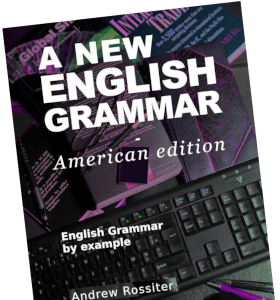
American English
Is it really different from British English?
About-the-USA.com
- Main
menu ►
- Life and
institutions
- Tourism & travel
- Places
★★★ About-the-USA.com ★★★
A guide to discovering the United States
A guide to discovering the United States
Language in the USA, 2. American English
| Page menu | American accents |
Words and spelling | Grammar |

San
Francisco - an English-speaking city with a Spanish name
The simple answer to this often-asked question is a single word. YES.
By most standards of linguistic measurement, British English and American English are one and the same language. There is just one single way in which they may often seem to be different languages, and that is in matters of phonetics, or accent.
Accents
Generally speaking, anyone familiar with the English language will be able to distinguish an American accent. American English speakers and British English speakers pronounce some things differently... but this does not mean that they speak two different languages. Indeed, the pronunciation of American English is no more different from standard British English than are many regional accents within the United Kingdom, such as Scottish accents or "Geordie" or Liverpudlian.And within the USA too, there are different regional accents. A person born and bred in Texas or Alabama does not speak the same way as someone from New York or rural Maine.
Accents relate only to spoken language, and this is where differences between British English (BrEn) and American English (AmEn) are most perceptible. Accent affects every word or phrase a speaker utters, so it is percepitble all the time The three other ways in which we can compare languages relate primarily to written language, and will only apply to certain words or expressions. They are differences in lexis (words), spelling, and grammar. In all of these fields, and particularly in terms of grammar, American English and British English have very few differences. This explains why American English speakers and British English speakers can communicate with each other without any difficulty, why movies do not need to be dubbed from American English into British English , and nobody needs an American-English dictionary, even if a few words are different.
Lexis
There are only a handful of common words which have different meanings in American English.The classic example is the word pavement, which in the UK is the part beside a city street which is reserved for pedestrians (people walking on foot), and in the USA is the roadway itself, where cars drive.
On the other hand, there are quite a few common American terms that either are very rare, or do not exist in BrEn. The common American word fawcet - the device on a washbasin or sink which allows you to turn on the water - is unknown in Britain, where it is called a tap.
Here are some other common differences: trousers (BrEn) = pants (AmEn), chemists (BrEn) = drugstore (AmEn), chips (BrEn) = french fries or just fries (AmEn), lorry (BrEn) = truck (AmEn), bumper (BrEn) = fender (AmEn), boot (of a car) (BrEn) = trunk (AmEn), petrol (BrEn) = gas (AmEn)... and some other transport vocabulary that emerged during the late 19th early 20th centuries.
Generally speaking, there are few lexical differences between British and American varieties of English, and there are even less that are likely to cause confusion.
Spelling.
Hôtels
throughout the USA
A great selection at best rates
from Booking.com
:

Los
Angeles:

San Francisco
New York
Washington
Orlando
Indeed, AmEn (thanks to a decision by Websters dictionary back in 1828) uses the ending -or for a raft of words in which BrEn uses the ending -our: color, humor, honor, neighbor, behavior, and so on. This is perhaps the most commonly recognized difference between the two spelling systems.
One often perceived difference is the way in which words ending in -ise in BrEn are spelt with -ize in the USA - the obvious example here being the word recognize itself, which is British English is usually written recognise. However, while the -ize ending is standard in the USA, both endings may be acceptable in British English, depending on the word and the "authority" deferred to. Where ize and ise are concerned, there is a degree of uniformity in the USA, but a degree of confusion in British English.
American spelling, when it differs from BrEn spelling, tends to be more phonetic, doing away with unpronounced letters. So Americans write program while BrEn uses programme, and Americans write Catalog where BrEn has catalogue.
One other, but less often noticed difference between AmEn and BrEn is the non-doubling of final consonants before suffixes added to two-syllable verbs stressed on the first syllable. So American write traveler and traveling, and canceled, where BrEn requires traveller or cancelled.
AmEn has also adopted a more phonetic spelling for words which, in English, end in -re, such as litre, metre or theatre, which in AmEn are liter, meter and theater.
Most other words... maybe 99% of all words.... are spelled (or spelt) the same way in BrEn and AmEn, and even whern there are national preferences, such as spelled or smelled (required in AmEn) rather than spelt or smelt (optional alternative spellings in BrEn), few people will notice, let alone complain about, the use of the other spelling.
While prescriptive spell-checker tools in word-processing software may be helping to push British English and American English spellings apart, the new international distribution of texts in all varieties of English, which was impossible before the age of the Internet, has helped acceptance of varying spellings, where they exist.
Grammar
The grammar (1) of American English only differs from the grammar of British English in a few minor cases. There are no significant differences, and none that could cause confusion under normal circumstances. The most significant of these small differences are:- Use of the present perfect tense, as in "I've never smoked cannabis." An American speaker would not normally use a present perfect tense in this situation, but would say "I never smoked cannabis"
- Shall. The modal auxiliary verb shall is not much used in American English. In this way AmEn has just preempted BrEn, where use of shall is also falling out of fashion.
- Questions. "Do you have...?" is more normal in American English than "Have you got?"
British English and American English are very much one and the same language, with just a few differences in pronunciation, spelling, words and grammar. Apart from a few pronunciation issues, which people from outside the USA may need to adjust to, there is very little to distinguish the standard varieties of English used on one side of the Atlantic from those used on the other.
But if you think that you hear a Texan asking you for a pin, it's more likely that he or she is really asking for something to write with.
Return to Part 1: English and other languages in the USA
Notes.
1. The website English-Grammar.info describes grammar very smiply as "a guidebook to explain how a language works".
For more background to the USA.....
► Book / ebook A Background to modern America - people, places and events that have played a significant role in the shaping of modern America. A C1-level Advanced English reader for speakers of other languages, and anyone wanting to learn some of the background to today's USA. Twenty-two texts, with vocabulary guides and exercises.About-the-usa.com
Home
page
Broadway in New York
Discover the U.S.A.
its past, its present, its future.
The people, places and events that made modern America - Elvis Presley, M-L King, J-F Kennedy, the Mississippi, Route 66 and a whole lot more....

its past, its present, its future.
The people, places and events that made modern America - Elvis Presley, M-L King, J-F Kennedy, the Mississippi, Route 66 and a whole lot more....
CLICK FOR DETAILS

Health care for visitors and tourists to the USA
People visiting the USA as a tourist, even those with US citizenship, are very strongly advised to take out a travel health insurance policy to cover their stay/s in the USA. Medical costs in the USA can be very high, and even a simple visit to a doctor can cost typically between $100 and $200, and a day in hospital may well cost over $3,000.About-the-USA.com
is
an independent guide to the USA, free of external advertising. Pages
may contain links to useful external websites, including US government
websites and other official sources, as well as
affiliate links to relevant travel service providers. A small
commission may be earned from purchases made through these
affiliate links.
Other
places, other countries...
Partner websites
Institutions, life and tourism- About France - a thematic guide to France. Over 200 pages of information for visitors and students.
- About Britain - a thematic introduction to Britain covering institutions, life and tourism
- Angleterre.org.uk - Le guide de l'Angleterre, en français
Travel and tourism
- About Quebec - Discover the French-speaking province of Canada
- About California - a thematic travel guide to California
- About-Portugal.com - Discover Portugal and its regions
- About Spain - discover the real Spain - an incomplete guide to Spain on and off the beaten track
Text © About-the-usa.com
About : About-the-usa.com is a Travel-Webs site
To contact this website please use the form provided.
Photo credits.
Top of page by Jimmy Teoh.

